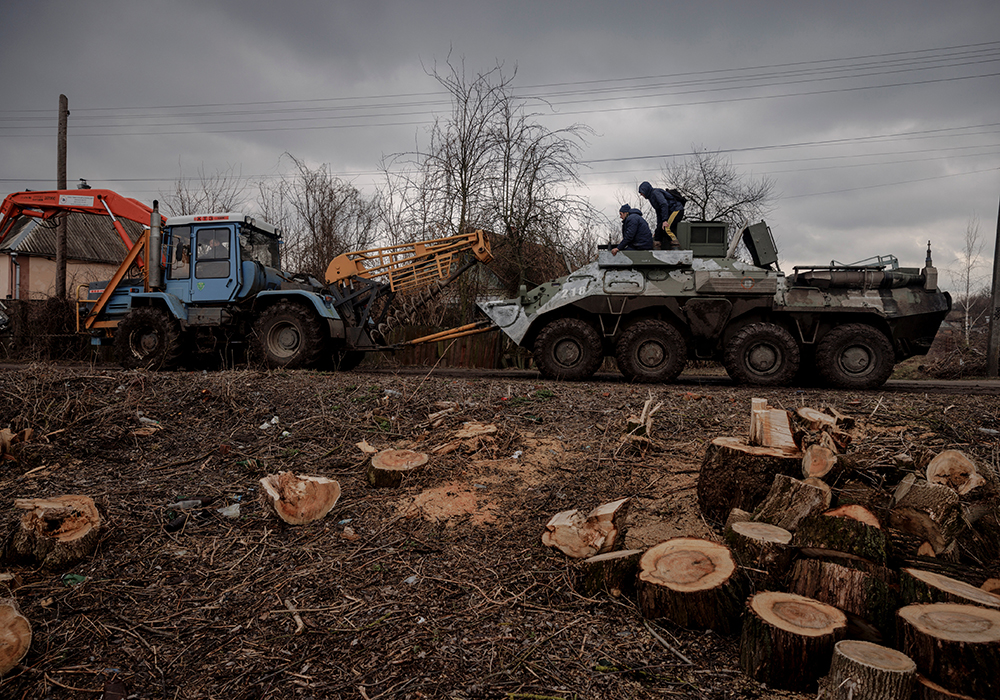According to one geopolitical analyst, the war in Ukraine is going to have long-lasting and wide-ranging ramifications for agriculture.
Peter Ziehan gave a recent online presentation for Farm Credit Services of America and if Ziehan is correct, turbulent times are ahead.
The world’s number one wheat exporter has invaded the world’s number four wheat exporter and speculation abounds over how much production and exports will be reduced. Ziehan was not optimistic with war in a major world breadbasket.
The large Russian farms that service the export market are heavily reliant on imported inputs that will slow to a trickle. Meanwhile, it will be difficult for ships to get insurance for loading grain in a war zone.
Read Also

Higher farmland taxes for investors could solve two problems
The highest education and health care land tax would be for landlords, including investment companies, with no family ties to the land.
Russia has often put limits on its wheat exports to protect domestic consumption with countries in the Middle East most affected. Russia pulling back from the market has always caused wheat price increases. Now, Russia will involuntarily have to pull back for an extended time frame. Ziehan expects huge wheat price increases that could lead to political instability in some importing nations.
Another big impact is in fertilizer markets. Overall, Russia is the largest exporter of fertilizer and natural gas. While shale gas will keep natural gas relatively cheap in the United States, Ziehan said it will take years to address the natural gas shortage in Europe, meaning nitrogen will be expensive and in short supply. North American nitrogen will be expensive, but cheap compared to other regions of the world.
Meanwhile, unrelated to the war in Ukraine, China has banned the export of phosphate fertilizer to preserve it for their rice crop. Ziehan said that ban could last for years. Overall, many regions will reduce their fertilizer use because they can’t afford it. Global crop planting patterns will change, especially outside of North America.
According to Ziehan, China’s ongoing problems with COVID are related to the ineffectiveness of their vaccines. Without proper immunity in the population, they have no choice but to impose severe lockdowns in an attempt to quell the spread. This is making China an unreliable manufacturer.
Beyond the pandemic, China has a major labour force issue. The one-child policy of the past means an aging population with not enough workers to replace those retiring. Many nations face this issue, but it’s much more dramatic in China.
Some observers speculate that China will buy all the products from Russia that it can’t sell elsewhere. Ziehan does not share that view. Logistics are not favourable. The two pipelines carrying natural gas from Russia to China are maxed out. So is rail capacity between the two countries. Overall, the analyst believes China will be very damaged by the Ukraine war.
Compounding all the issues, oil and gas have seen reduced investment in recent years as the world tries to pivot away from fossil fuels. As well, in much of the world, fossil fuel energy is typically produced far from where it’s consumed.
There’s nothing pro-ethanol in what is happening and Ziehan wondered if the U.S. ethanol mandate will be revisited. Although he didn’t mention it in his presentation, one also has to wonder about the future of renewable diesel in a world struggling to feed itself.
Ziehan said the globalization necessary to feed eight billion people on the planet is breaking down and it’s difficult to argue with his premise. With fertilizer shortages likely to last for years, he said we’re at the beginning of a de-globalization process.
Kevin Hursh is an agricultural journalist, consultant and farmer. He can be reached by e-mail at kevin@hursh.ca.
















